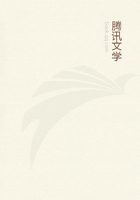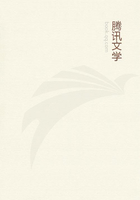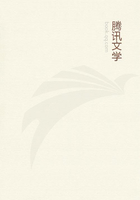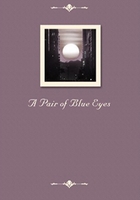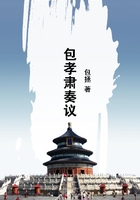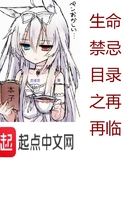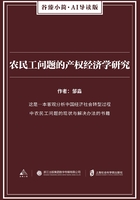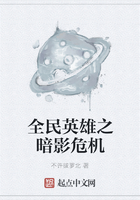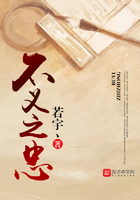Also it is possible to explain this phenomenon geologically, because here in this region is the southern edge of the coal deposits which are the source of carbonic acid and swamp gases.
Not far from the ruins in the lands of Hun Doptchin Djamtso there is a small lake which sometimes burns with a red flame, terrifying the Mongols and herds of horses. Naturally this lake is rich with legends. Here a meteor formerly fell and sank far into the earth.
In the hole this lake appeared. Now, it seems, the inhabitants of the subterranean passages, semi-man and semi-demon, are laboring to extract this "stone of the sky" from its deep bed and it is setting the water on fire as it rises and falls back in spite of their every effort. I did not see the lake myself but a Russian colonist told me that it may be petroleum on the lake that is fired either from the campfires of the shepherds or by the blazing rays of the sun.
At any rate all this makes it very easy to understand the attractions for the great Mongol potentates. The strongest impression was produced upon me by Karakorum, the place where the cruel and wise Jenghiz Khan lived and laid his gigantic plans for overrunning all the west with blood and for covering the east with a glory never before seen. Two Karakorums were erected by Jenghiz Khan, one here near Tatsa Gol on the Caravan Road and the other in Pamir, where the sad warriors buried the greatest of human conquerors in the mausoleum built by five hundred captives who were sacrificed to the spirit of the deceased when their work was done.
The warlike Pandita Hutuktu prayed on the ruins where the shades of these potentates who had ruled half the world wandered, and his soul longed for the chimerical exploits and for the glory of Jenghiz and Tamerlane.
On the return journey we were invited not far from Zain to visit a very rich Mongol by the way. He had already prepared the yurtas suitable for Princes, ornamented with rich carpets and silk draperies. The Hutuktu accepted. We arranged ourselves on the soft pillows in the yurtas as the Hutuktu blessed the Mongol, touching his head with his holy hand, and received the hatyks. The host then had a whole sheep brought in to us, boiled in a huge vessel. The Hutuktu carved off one hind leg and offered it to me, while he reserved the other for himself. After this he gave a large piece of meat to the smallest son of the host, which was the sign that Pandita Hutuktu invited all to begin the feast. In a trice the sheep was entirely carved or torn up and in the hands of the banqueters. When the Hutuktu had thrown down by the brazier the white bones without a trace of meat left on them, the host on his knees withdrew from the fire a piece of sheepskin and ceremoniously offered it on both his hands to the Hutuktu. Pandita began to clean off the wool and ashes with his knife and, cutting it into thin strips, fell to eating this really tasty course. It is the covering from just above the breast bone and is called in Mongolian tarach or "arrow." When a sheep is skinned, this small section is cut out and placed on the hot coals, where it is broiled very slowly. Thus prepared it is considered the most dainty bit of the whole animal and is always presented to the guest of honor. It is not permissible to divide it, such is the strength of the custom and ceremony.
After dinner our host proposed a hunt for bighorns, a large herd of which was known to graze in the mountains within less than a mile from the yurtas. Horses with rich saddles and bridles were led up.
All the elaborate harness of the Hutuktu's mount was ornamented with red and yellow bits of cloth as a mark of his rank. About fifty Mongol riders galloped behind us. When we left our horses, we were placed behind the rocks roughly three hundred paces apart and the Mongols began the encircling movement around the mountain.
After about half an hour I noticed way up among the rocks something flash and soon made out a fine bighorn jumping with tremendous springs from rock to rock, and behind him a herd of some twenty odd head leaping like lightning over the ground. I was vexed beyond words when it appeared that the Mongols had made a mess of it and pushed the herd out to the side before having completed their circle. But happily I was mistaken. Behind a rock right ahead of the herd a Mongol sprang up and waved his hands. Only the big leader was not frightened and kept right on past the unarmed Mongol while all the rest of the herd swung suddenly round and rushed right down upon me. I opened fire and dropped two of them. The Hutuktu also brought down one as well as a musk antelope that came unexpectedly from behind a rock hard by. The largest pair of horns weighed about thirty pounds, but they were from a young sheep.
The day following our return to Zain Shabi, as I was feeling quite recovered, I decided to go on to Van Kure. At my leave-taking from the Hutuktu I received a large hatyk from him together with warmest expressions of thanks for the present I had given him on the first day of our acquaintance.
"It is a fine medicine!" he exclaimed. "After our trip I felt quite exhausted but I took your medicine and am now quite rejuvenated. Many, many thanks!"The poor chap had swallowed my osmiridium. To be sure it could not harm him; but to have helped him was wonderful. Perhaps doctors in the Occident may wish to try this new, harmless and very cheap remedy--only eight pounds of it in the whole world--and I merely ask that they leave me the patent rights for it for Mongolia, Barga, Sinkiang, Koko Nor and all the other lands of Central Asia.
An old Russian colonist went as guide for me. They gave me a big but light and comfortable cart hitched and drawn in a marvelous way. A straight pole four metres long was fastened athwart the front of the shafts. On either side two riders took this pole across their saddle pommels and galloped away with me across the plains. Behind us galloped four other riders with four extra horses.

